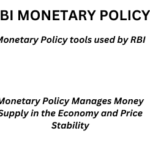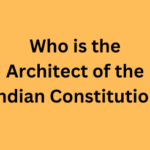Congress leader Rahul Gandhi disqualified as MP : Basics Explained

Congress leader Rahul Gandhi has been disqualified as a member of the Lok Sabha from the date of his conviction by a Surat court in the criminal defamation case on March 23 over his ‘Modi surname’ remark
The decision was taken under the provisions of Article 102 (l) (e) of the Constitution of India read with Section 8 of the Representation of the People Act, 1951.
LEARNING FROM HOME/ WITHOUT CLASSES/BASICS
Article 102 laid down the disqualification relating to the membership of both the houses of Parliament.
Article 191 of the Constitution of India mentioned the criteria for disqualifications from membership of a state legislature.
ART 191:
if he holds any office of profit under the Government of India or the Government of any State specified in the First Schedule, other than an office declared by the Legislature of the State by law not to disqualify its holder;
b) if he is of unsound mind and stands so declared by a competent court;
c) if he is an undischarged insolvent.
d) if he is not a citizen of India, or has voluntarily acquired the citizenship of a foreign State, or is under any acknowledgment of allegiance or adherence to a foreign State;
e) if he is so disqualified by or under any law made by Parliament.
(2) A person shall be disqualified for being a member of the Legislative Assembly or Legislative Council of a State if he is so disqualified under the Tenth Schedule.
Section 8 of the Representation of the People Act (RP Act) deals with disqualification on conviction for certain offences. A person convicted of any offence and sentenced to imprisonment for varying terms under Sections 8 (1) (2) and (3) shall be disqualified from the date of conviction and shall be disqualified for a further period of six years since his release. However, the Section 8 (4) of the RP Act gave protection to MPs and MLAs as they could continue in office even after conviction if an appeal is filed within three months.
But in a recent judgement, Lilly Thomas case Supreme Court Bench of Justices A.K. Patnaik and S.J. Mukhopadhaya struck down Section 8 (4) as unconstitutional and held that chargesheeted Members of Parliament and MLAs, when convicted, will stand disqualified from membership of the House without being given three months’ time for appeal.
Article 192 it has been mentioned that that if any question arises as to whether or not the member of a house of the legislature of a state has become subject to any of the disqualification criteria, the question shall be cited to the Governor of the State for decision who will act as per the opinion of the Election Commission (EC). His decision shall be final and may not be reviewed by any court of law.
Article 324 to 329 of Part XV of the Constitution deals with the electoral system in our country.
Constitution allows Parliament to make provisions in all matters relating to elections to the Parliament and State Legislatures.
In the exercise of this power, the Parliament has enacted laws like the Representation of the People Act 1950 (RPA Act 1950), Representation of the People Act 1951 (RPA Act 1951), and Delimitation Commission Act of 1952.





0 Comments